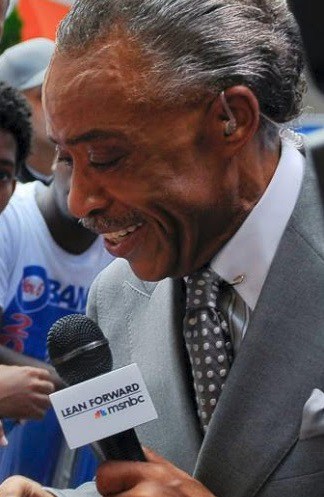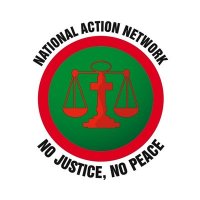
Phillip “Victory is Ours” Dampier
It has been 14 months since we heard for the first time Comcast was planning to acquire Time Warner Cable. It was the night of February 12, 2014. I still remember where I was the moment I first learned the news.
Stop the Cap! has maintained a civil relationship with Time Warner Cable for the most part over our seven-year struggle fighting usage caps, lousy broadband, and high prices. We fought one major battle with the company in April of 2009, when Time Warner executives planned a compulsory usage cap experiment on customers in Rochester, N.Y., Austin and San Antonio, Tex., and Greensboro, N.C.
Just as we had done with Frontier Communications a year earlier, we successfully beat down their efforts to impose usage allowances on customers already paying a significant chunk of money for broadband Internet access. After that battle ended, Time Warner Cable changed their position on usage caps and stated emphatically that customers should always have the option of unmetered/unlimited access. They have kept their word. In fact, their optional usage cap experiments have been a spectacular flop, attracting less than 1% of their customer base and delivering the message we’ve tried to get across the industry for years: customer hate usage caps, usage-based billing, and speed throttles.
Comcast is a company that long ago stopped listening to their customers. It applied an arbitrary usage cap on all their customers in retaliation for a FCC decision that disallowed them from running hidden speed throttles on peer-to-peer Internet traffic. Comcast lied about throttling traffic, paid homeless people to stack a hearing on the issue to keep company critics out of the room, and slapped the caps on in the fall of 2008 with the flimsy excuse it represented “fairness” to customers. Only later, we would learn usage caps were never about “fairness” or good traffic management. It’s just a way to deter customers from spending too much time on the Internet, especially if that time is spent watching online videos. Too much time spent watching Netflix might convince you your cable TV package isn’t necessary any longer.
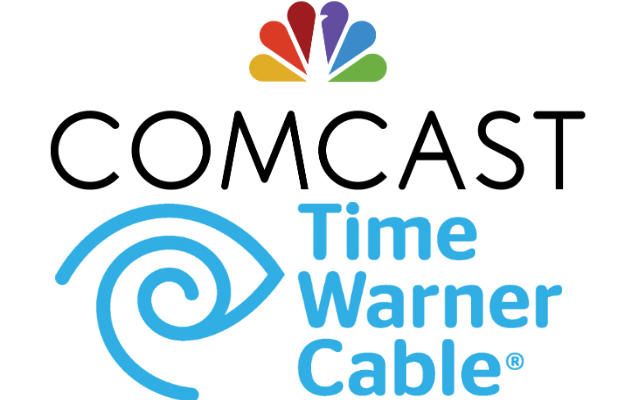 Comcast customer service horror stories reached a level unparalleled by other cable companies when a Comcast predator-installer was convicted of raping and strangling to death 23-year old Comcast customer Urszula Sakowska, whose lifeless body was found in a bathtub inside her Chicago-area home back in 2006. But Triplett’s violent service calls didn’t stop there. He also faced charges in the death of 39-year old Janice Ordidge, a Comcast customer in Hyde Park. Those two Comcast customers lost their lives. In 2009, another Comcast installer set a Pennsylvania customer’s house on fire. Other installers stole jewelry right out of customers’ homes. Others have exposed themselves in front of female customers or fallen asleep on their couches.
Comcast customer service horror stories reached a level unparalleled by other cable companies when a Comcast predator-installer was convicted of raping and strangling to death 23-year old Comcast customer Urszula Sakowska, whose lifeless body was found in a bathtub inside her Chicago-area home back in 2006. But Triplett’s violent service calls didn’t stop there. He also faced charges in the death of 39-year old Janice Ordidge, a Comcast customer in Hyde Park. Those two Comcast customers lost their lives. In 2009, another Comcast installer set a Pennsylvania customer’s house on fire. Other installers stole jewelry right out of customers’ homes. Others have exposed themselves in front of female customers or fallen asleep on their couches.
Billing errors are the stuff of legend at Comcast. Offshore call centers with language barriers, inept customer service, and long, long, long lines at cable stores with windows only partially manned by agents sitting behind bullet-proof glass also helped cultivate a customer relationship that can best be described as “perp and victim.”
Comcast isn’t just a bad cable company, it’s a menace. We didn’t have to spend hours proving our case. Fortunately, Comcast’s appalling reputation preceded it. Outside of two executive suites in Philadelphia and New York, nobody was for supersizing Comcast. Just to make sure our regulators knew this, we traveled to Buffalo in June of last year to testify at a Public Service Commission hearing on the subject of the merger. We didn’t mince words.
Sure, there were non-profit groups like the Boys & Girls Club that absolutely sullied their reputation pushing for the merger (Comcast wrote large checks to the organization so you need not give the group a single penny of your money in the future). “Civil Rights” organizations like the Urban League, NAACP, and others that used to defend minority rights now concern themselves with defending the interests of giant cable companies, just as long as they get a nice check in the mail with Comcast’s name on it. Among the worst of all – Shakedown Al Sharpton who will either be your merger deal’s best friend or will go away and leave victims of racism in peace, if you cut his organization a big fat check. (Now that the merger has collapsed, perhaps Comcast-owned MSNBC will end the thinly veiled quid-pro-quo arrangement it has with the man that gives him an hour a night to perform a talent train wreck.)
My own state assemblyman, Joe Morelle, who served as New York’s interim assembly speaker for about five minutes literally plagiarized his letter in support of the Comcast merger (after cashing their check) almost word-for-word from Comcast press releases and congressional testimony. Say it ain’t so, Joe!
 N.Y. State Assembly Leader Joe Morelle: “The combination of Comcast and Time Warner Cable will create a world-class communications, media and technology company to help meet the increasing consumer demand for advanced digital services on multiple devices in homes, workplaces and on-the-go.”
N.Y. State Assembly Leader Joe Morelle: “The combination of Comcast and Time Warner Cable will create a world-class communications, media and technology company to help meet the increasing consumer demand for advanced digital services on multiple devices in homes, workplaces and on-the-go.”
 David Cohen, executive vice-president, Comcast: “The combination of Comcast and TWC will create a world-class communications, media, and technology company to help meet the insatiable consumer demand for advanced digital services on multiple devices in homes, workplaces, and on-the-go.”
David Cohen, executive vice-president, Comcast: “The combination of Comcast and TWC will create a world-class communications, media, and technology company to help meet the insatiable consumer demand for advanced digital services on multiple devices in homes, workplaces, and on-the-go.”
There was not a doubt in my mind that replacing Time Warner Cable with Comcast would be a disaster for Time Warner Cable customers. Despite promises Comcast would upgrade Time Warner’s network, it would also upgrade customer bills, resorting in higher priced service, higher modem fees, and lousy customer service. Comcast vice president David Cohen also made it clear usage caps would be a part of our life within five years. No amount of protesting or rational argument would stop Comcast from being Comcast. Don’t like it? Just try to cancel.
Time Warner Cable can be bad but it is no Comcast.

Malone: Waiting in the wings?
Life will be just fine without Comcast, but danger lurks on the horizon. Still interested in the possibility of taking over Time Warner Cable is the smaller Charter Communications, now effectively controlled by cable magnate John Malone (he owns his own castles). Malone has a long history of enriching himself at the expense of customers with no other choices for cable/broadband service. He used to control Tele-Communications, Inc. (TCI), a cable company that literally threatened city officials who didn’t do what TCI wanted.
We remain unsure exactly what will happen next. Charter could bid aggressively to buy Time Warner Cable, Time Warner Cable could go it alone, or Time Warner Cable could start buying other cable companies (like Charter).
What we hope will happen is Time Warner Cable will refocus its energy on expanding its Maxx upgrade program as quickly as possible to reach all Time Warner Cable markets with faster broadband and a better cable TV experience. We also hope the company will stand by its word that compulsory usage caps are off the table.
I’d like to thank all of our readers who took the time to get involved in the fight and helped make a difference. Wall Street and Washington, as well as Comcast CEO Brian Roberts are all shocked the merger deal collapsed after a torrent of criticism from consumers. It also left state regulators cautious about how to proceed. New York’s Public Service Commission delayed making a decision eight times, recognizing the merger as a hot potato.
Our experience demonstrates that ordinary citizens can wield considerable power when unified and involved. We’ve proved that with multiple victories on the usage cap front as well as the AT&T/T-Mobile merger and Net Neutrality.
Let the fight for better broadband continue!


 Subscribe
Subscribe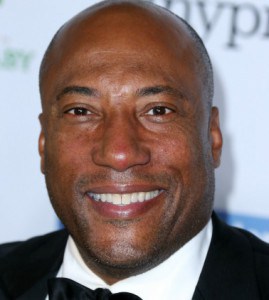
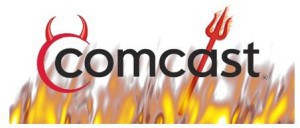

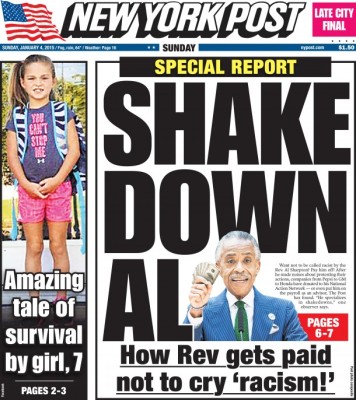 Looking for civil rights groups to support your multi-billion dollar telecom merger and keep minority groups off your back?
Looking for civil rights groups to support your multi-billion dollar telecom merger and keep minority groups off your back? While the money keeps rolling in, Sharpton has
While the money keeps rolling in, Sharpton has 